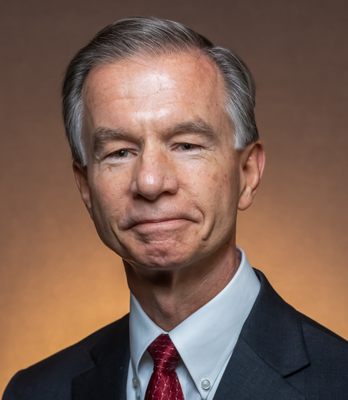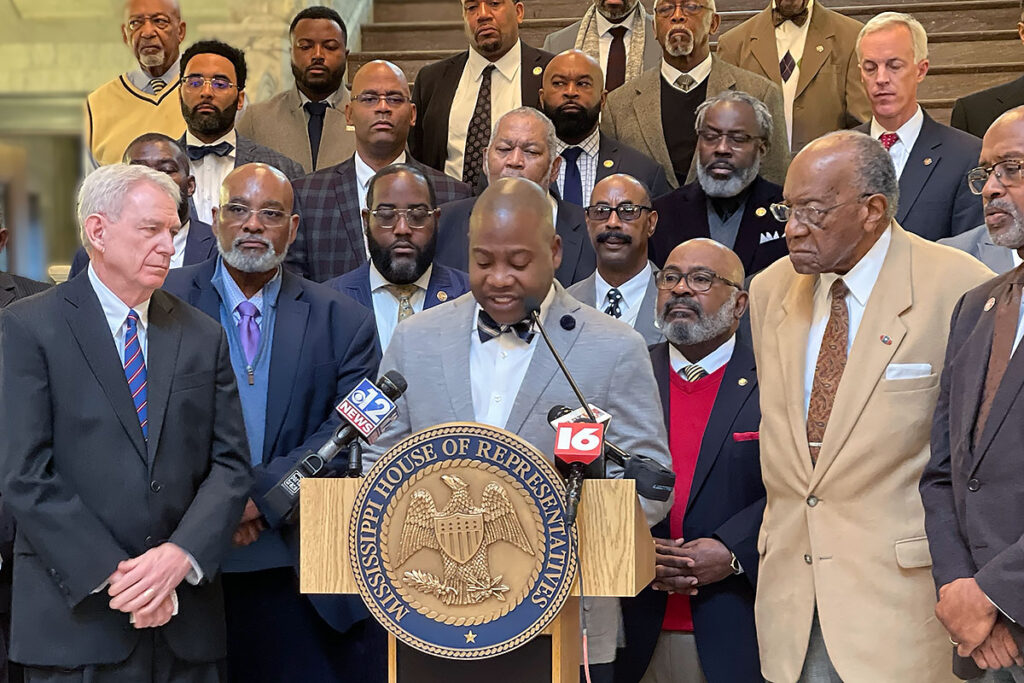The number of rural hospitals at risk of closing in Mississippi is now 28, down from 38 late last year, reports the Pittsburgh, Pa.-based Center For Healthcare Quality and Payment Reform. Mississippi State Health Officer Dr. Daniel Edney and Medicaid-expansion advocates have repeatedly cited the old figure while warning that dozens of the state’s rural hospitals are in danger of financial collapse.
Magnolia Tribune founder Russ Latino first noted that CHQPR had revised its report in a Feb. 7 op-ed in which he questioned the sudden drop and the overall report’s veracity. “If accurate, this marks the largest drop of any state in alleged at-risk hospitals,” he wrote.
Harold D. Miller, the center’s president and CEO, told the Mississippi Free Press in an interview Tuesday that the center updates its report quarterly based on financial data those hospitals file with the Center For Medicare and Medicaid Services.
Asked about the 26% reduction in the number of at-risk hospitals, the CEO pointed to pandemic-era volatility, saying some hospitals may look better off than they did previously due to receiving pandemic-era assistance
“It is particularly challenging right now because of the pandemic assistance,” Miller said. “So many of these hospitals, particularly small rural hospitals, got very large grants from the federal government during the pandemic.”
With each report, Miller said, the center attempts to estimate hospitals’ losses, examine whether they have other sources of revenue to cover patient services such as local tax dollars and look at assets they have in the bank.
“So the problem is, this federal money came, and you don’t know exactly how much the hospital received and whether they can keep it all because they had to use it to pay for pandemic-related expenses,” he told the Mississippi Free Press. “Every time the new data comes out, some hospitals will look like they have more money because these grants were earned.”
Miller said the firm uses three-year averages when looking at profits and losses, but the pandemic complicated that, too. The center is still using information about hospitals before the pandemic to make its assessments, he said.
“So a hospital had to be losing money prior to the pandemic in order to be considered having a loss at all,” Miller explained.
‘There’s Still A Serious Problem’
The CEO cautioned against overemphasizing the latest drop in the number of endangered rural hospitals, however. Just because a rural hospital is no longer identified as being at risk within the next few years does not mean the dangers are gone, Miller said.
“A temporary grant that may have pushed back the day of reckoning somewhat is not necessarily an indication that things are going well,” he said.
Even after the decrease, Mississippi still has the fourth- highest number and percentage of rural hospitals in peril out of all 50 states, he noted.
“People are focusing on this 38 to 28 like it’s some big positive thing, when the reality is there are still 28 hospitals at risk,” Miller said. “A quarter of hospitals show up in the immediate risk category. And there’s still a serious problem. So the whole point of this report is simply to say something needs to be done far enough in advance before the hospital is forced to close or has to cut back even more services than it may have done.”
In some cases, he said, a hospital may look better off financially on paper “not because it is doing better, but because it eliminated some service that was important to the community.”
“That might have made them look better, but it doesn’t mean they are doing better in terms of what the community needs,” he said.
Last week, the Mississippi Senate unanimously approved a bill that would make it easier for some community-owned hospitals to consolidate services or collaborate with facilities in other parts of the state. It would still need to pass the House and earn the governor’s signature to become law. Lawmakers say the legislation could ease some of the burdens hospitals are facing, but health care leaders say far more is needed to avoid calamity.
‘The Crisis Is Upon Us’
On Feb. 2, Democratic legislative leaders held a press conference at the Capitol along with former University of Mississippi Chancellor Dan Jones, who once led the University of Mississippi Medical Center, to criticize state leaders for inaction on the hospital crisis.
During the press conference, Jones claimed that Reeves had once told him he believed expanding Medicaid would “would be good for Mississippians,” but that it was “not in (Reeves’) personal political interest.’” Reeves, a longtime public opponent of Medicaid expansion, responded in a tweet thread saying he “never would have said this.”

“The liberal media will print a lie about me all day, so Democrat activists lie,” the governor wrote. Reeves’ hopeful Democratic opponent in this year’s election for governor, Brandon Presley, recently seized on the CQHP’s prior report that 38 rural hospitals were in danger of collapse in his attacks on the incumbent.
Reeves and his staff complained publicly that some media outlets, not including the Mississippi Free Press, gave him little time to respond to Jones’ allegation, with Communications Director Hunter Estes tweeting that one outlet gave the governor a “literal six minute time window” to respond before printing Jones’ allegation.
Reeves also questioned why Jones would have “held this ‘juicy scoop’ for 8 years.” When asked about his delay in sharing the information, the former UM chancellor told Daily Journal reporter Taylor Vance that he withheld the information because he “had to be able to walk into a Republican’s office about our budget,” but that he is now “retired,” “unconstrained, and the crisis is upon us.”
Miller: Expansion Alone Won’t Save Hospitals
If Mississippi accepted Medicaid expansion, the federal government would give the State over $1 billion each year to help cover between 100,000 and 300,000 working Mississippians who make too much for traditional Medicaid but not enough to qualify for subsidies to afford private insurance. Health-care leaders in the state have told lawmakers that without expanding Medicaid, rural hospitals will continue to suffer financial losses from treating uninsured patients.
“When these individuals need health care, hospitals are required to treat them regardless of their inability to pay,” the Mississippi State Medical Association said in a statement in January. “And because these individuals are uninsured, the hospital is not compensated for necessary care. Such an economical strain on hospitals is not one that even the most successful private business could not endure.”

Miller, the CHQPR president, told the Mississippi Free Press that while Medicaid expansion would help at the margins and “it certainly would be helpful for hospitals if fewer of their patients were uninsured,” it is not a silver bullet.
“Based on what has happened in other places where Medicaid has been expanded, the small rural hospitals in those states benefited slightly, but it didn’t change the picture for them,” he said. “The reason is very simple. Because most of the problems they are facing are not due to uninsured patients; it’s due to underpayments by commercial insurers and even by Medicare.”
Mississippi is one of a dozen states that have declined to expand Medicaid. Despite representing just a quarter of the country, states that refused expansion made up 74% of all rural hospital closures between 2010 and 2021, an American Hospital Association report found last year.
But correlation is not the same as causation, Miller said, though he agrees that Medicaid expansion is “good for the patients.”
“So if you expand Medicaid it can be a part of a more comprehensive solution for helping rural hospitals” that includes addressing underpayments from government health coverage and commercial insurers, “but it is not by itself the only thing that is needed to solve the problem of rural hospital closures because it’s not the only thing that’s causing it,” he said.
Correction: An earlier version of this story called the organization the “Center For Quality Healthcare and Payment Reform.” Its name is the “Center For Healthcare Quality and Payment Reform.” We apologize for the error.










